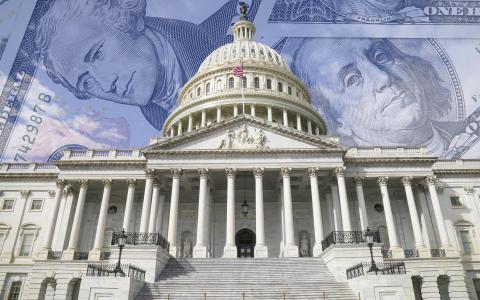
With former President Trump returning to the White House and Republicans securing control of the Senate, the uncertain outcome of the House races will significantly influence the future of the 2017 Tax Cuts and Jobs Act (TCJA), determining whether key provisions are extended or made permanent.
The TCJA, a hallmark of Trump’s first term, is poised for a “big push” as he aims to retain much of the legislation, according to Duane Thompson, president of Potomac Strategies. Many provisions, including reduced tax rates for high earners, are set to expire next year, meaning, without intervention, the top marginal tax rate will revert to 39.6% from the current 37%. Other tax brackets would also increase, and temporary benefits like the doubled estate tax exemption—raised for joint filers from $11.2 million to $22.4 million—would lapse.
While Republicans push for permanence, Democrats have long opposed the cuts favoring wealthier taxpayers and are likely to resist further reductions. Trump has floated funding these cuts with tariffs, an approach that may face strong opposition. Finalizing a tax package would require both chambers to reconcile their versions, giving a Democratic House a potential negotiating advantage to shape or exclude provisions. However, if Republicans hold the House, that leverage diminishes.
“If Republicans achieve a clean sweep, extending the TCJA should be relatively straightforward, likely finalized well before its expiration on December 31,” note analysts from ING. But if Congress splits, progress will be slower.
As of Wednesday, multiple House races remained undecided, though House Speaker Mike Johnson (R., La.) expressed confidence in maintaining Republican control, posting on X that recent data suggested Republicans would retain their majority.
If Democrats claim the House, the ING analysts predict “some dilution” of Republican tax proposals, possibly including corporate rate cuts, as a likely compromise to reach a deal.
Mark Quinn, Cetera’s regulatory affairs director, agrees, recalling the significant Democratic resistance to the TCJA in 2017. If Republicans control both chambers, the chances for extension are strong, he says. However, “If they don’t control both houses, it becomes more challenging. Democrats opposed these measures initially and would likely resist any extension.”
Failure to reach a deal would result in a reversion to 2016 tax rates, a scenario that could have “serious implications for capital markets and investment strategies,” according to Quinn.
Thompson suggests a more probable outcome where, regardless of party control, tax extenders are negotiated in the new Congress through budget reconciliation, bypassing the need for bipartisan support.



